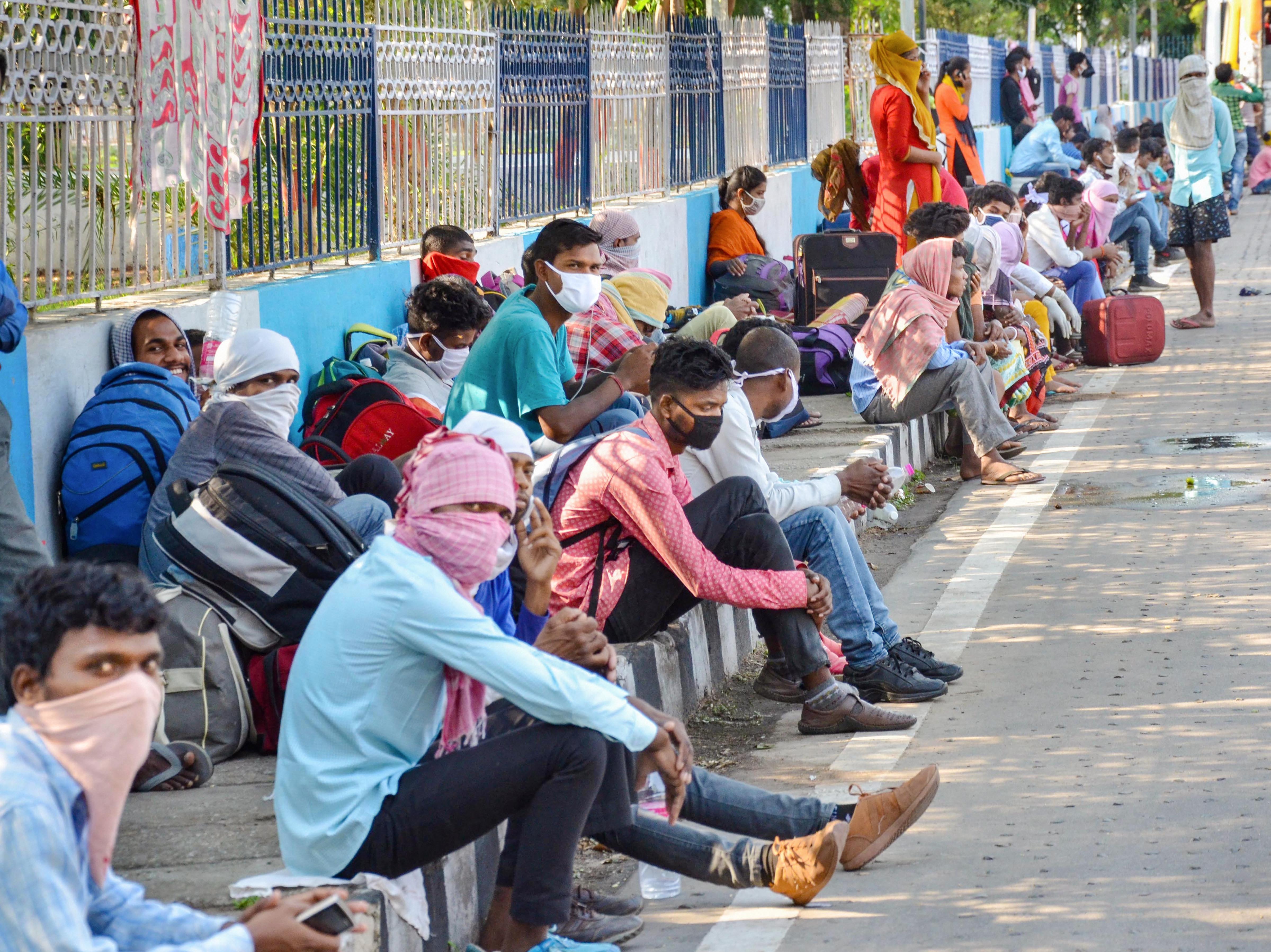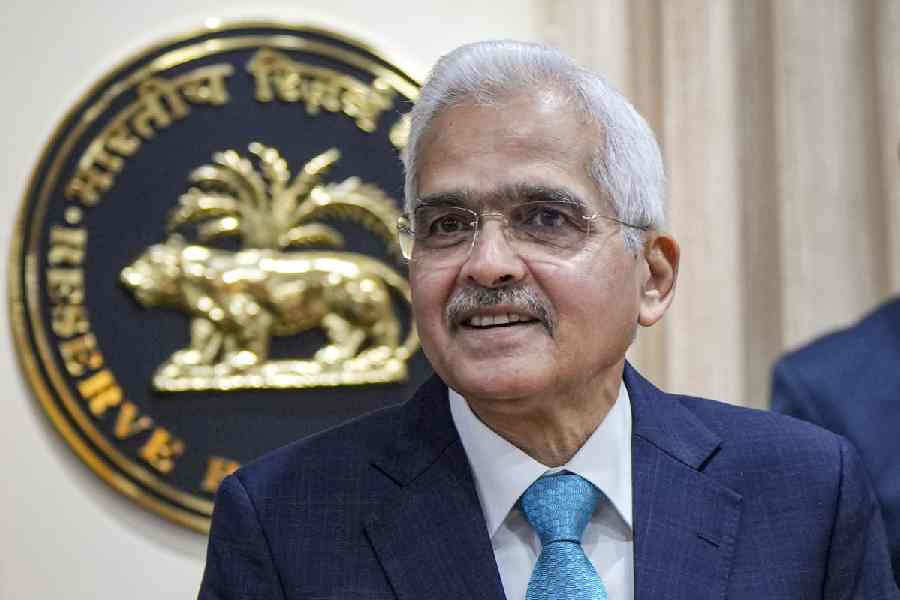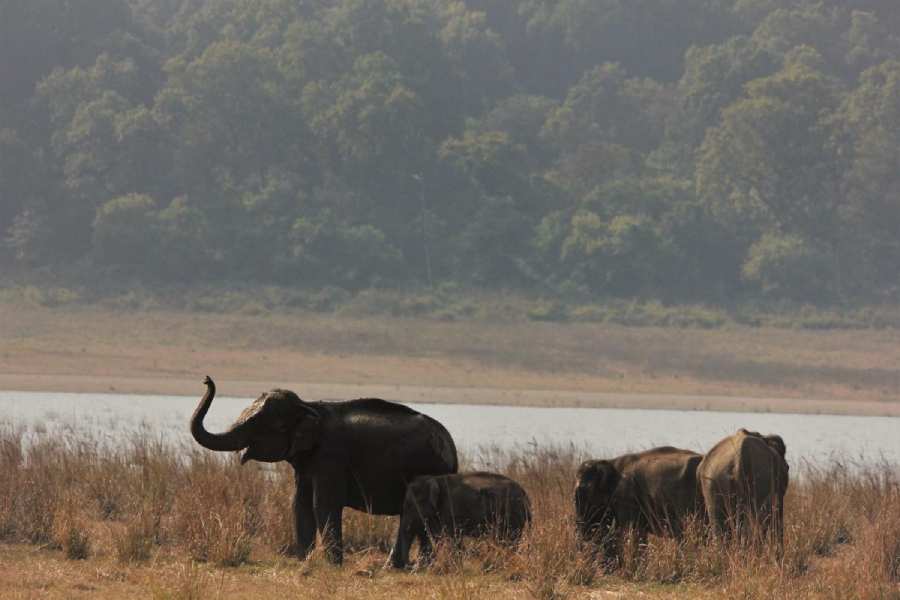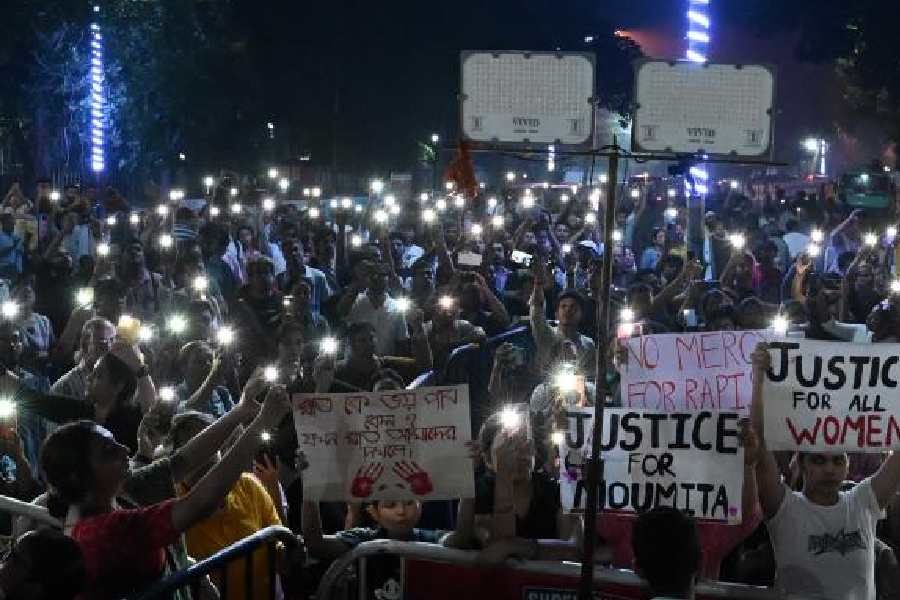The novel coronavirus, as of Saturday, had infected 217 persons — after six new cases surfaced since Friday night — and killed three of them in the state. That, when compared to the global scenario and the realities of a poor state like Jharkhand, does not come across as a deadly disease ravaging a population.
The Telegraph spoke to a senior officials and healthcare professionals to understand how Jharkhand is faring in its struggle against the virus that has spooked the world.Some felt the state is doing well, while others warned that the numbers were still not big enough to infer trends from.
What they all concurred on, however, was the need for attitudinal change towards the disease.
“The myth associated with Covid-19 that once you test positive you are doomed is absolutely wrong,” said principal health secretary Nitin Madan Kulkarni.
“Covid-19 is not a death sentence. Our state's recovery rate is over 50 per cent and mortality rate, as on Friday, was 1.48 per cent (the national rate is over 3 per cent). Large numbers of positive cases are getting cured, testing negative and returning home. Interestingly, not one of our ICU beds with ventilators has been used so far. The ventilator that was used for a Covid-19 case in Ranchi was due to renal failure and other complications.”
He said Jharkhand was not an exception.
“Merely 1 per cent of the ICU beds with ventilators have been used for Covid-19 cases in India so far,” added Kulkarni.
The Jharkhand health department has arranged more than 220 ICU beds with ventilators in hospitals across the state. The doubling rate of Covid-19 in Jharkhand, as of Friday, was 13.7 days.
That the stigma is playing on the mind of the people was also underlined by a reputed critical care doctor associated with RIMS Ranchi.
“Stigma attached to the novel coronavirus was a contributing factor in several carriers avoiding coming to the health centre for examination for fear of being quarantined and stigmatised in the society as infection carriers. It is important to protect the elderly and those with comorbid conditions (chronic health problems) from getting infected and such persons should approach hospitals at the earliest to avoid health complications. If they have symptoms which can be that of the coronavirus, they should get tested, isolated — to save their life through early diagnosis and treatment, and also to save their near and dear ones from getting infected,” said the middle aged doctor.
Dr Jeewan Mitra, head of the medicine department at the Rajendra Institute of Medical Sciences (RIMS) in Ranchi, said most infections so far have been mild.
“More than 80 per cent of the Covid-19 cases so far in Ranchi have mild or no symptoms and between 10 and 15 per cent have symptoms while only 5 per cent have developed complications that too due to co-morbid conditions such as diabetes, cardiac ailments, poor renal function or asthma,” Dr Mitra said.
“It seems the Covid-19 strain that has entered Jharkhand is milder as compared to that of Gujarat and Maharashtra. Though no studies have been carried out, there is a perception that since it is a malarial belt (Jharkhand) the immunity of people is a bit more against viruses,” he added.
Dr Rajan Chaudhry, general manager (medical services), Tata Steel, was more guarded.
“The number of Covid-19 cases is too small to draw any statistical inference on the success of the Jharkhand model at the moment,” Dr Chaudhry said.
“But the majority of the people do recover and only 3-5 per cent require ventilator support. The biggest problem is the stigma associated with Covid and the fear among people that anyone infected should be kept in some faraway quarantine centre,” he added.










